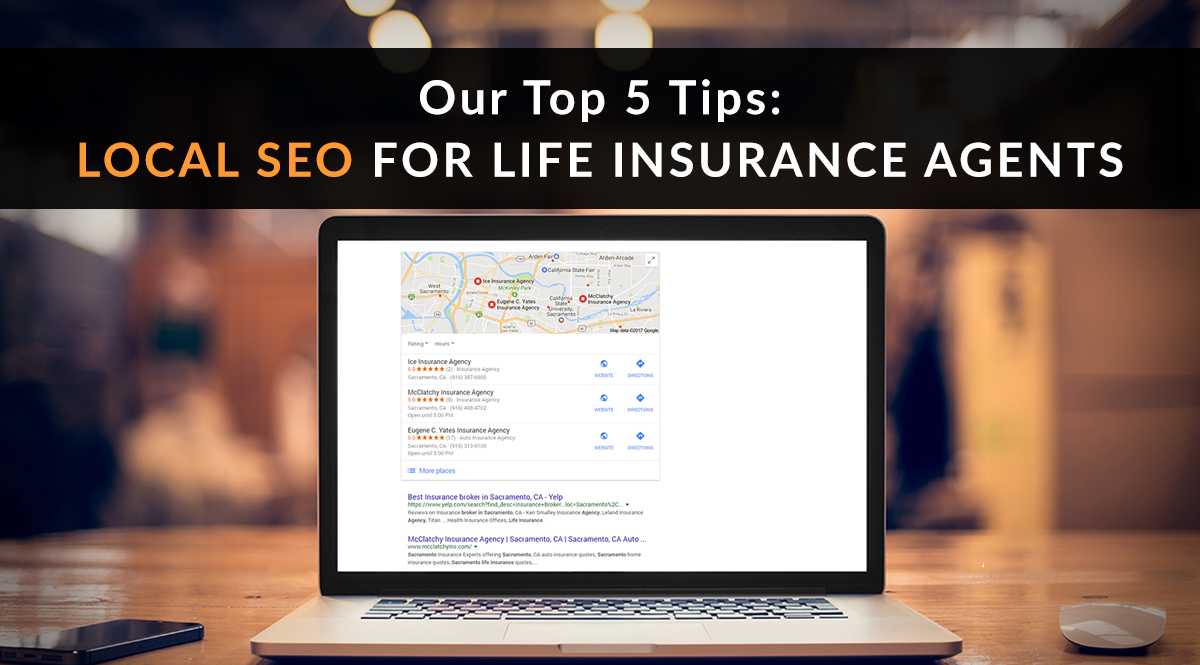When You Get in a Car Accident
Unfortunately, car accidents are quite common. In the United States alone, over six million car accidents occur annually. So, what should you do if you’re ever involved in one of these unfortunate events? The initial moments after being in a car accident are crucial, and your decisions and actions can have long-lasting consequences. Being well-prepared and knowing precisely what steps to take can help ensure your safety, protect your rights, and potentially minimize any legal or financial complications down the road. Here’s when you find yourself in a car accident.
What to Do After a Car Accident
The aftermath of a car accident can be bewildering and overwhelming, but it’s essential to stay calm and collected. Here’s a step-by-step guide to help you navigate this challenging situation and what to do if you get in a car accident:
1. Ensure Safety and Seek Assistance
The immediate aftermath of the car accident is critical, and your first priority should be ensuring the safety of yourself and any passengers. Once you’ve regained your composure, check for any injuries, no matter how minor they may seem. If you or anyone else is injured, call for emergency medical help immediately. Don’t hesitate to call 911, even if the injuries appear minor. Adrenaline can mask pain and the severity of injuries, so it’s always advisable to seek professional medical attention. Moreover, seeking immediate medical attention can help document your injuries and create a record for insurance purposes.
Once you’ve ensured everyone is safe, move your vehicle to the side of the road if possible. This will help prevent further accidents and ensure the safety of other motorists. However, if moving your vehicle would be dangerous or impossible, leave it where it is and turn on your hazard lights.
Next, call the police. They will create an accident report that can be helpful for insurance purposes and potentially in legal proceedings. While waiting for the police to arrive, exchange information with the other driver(s) involved, including their name, contact information, insurance company, and policy number. Take pictures of the accident scene, including the damage to both vehicles, any visible injuries, and the surrounding area. These photos can provide valuable evidence for insurance claims or potential legal disputes.
When You Get in a Car Accident
Getting into a car accident is never fun. It can be a scary and stressful experience, especially if you’re not sure what to do. That’s why it’s important to know what steps to take after a car accident so that you can protect yourself and your rights.
The first thing you should do after a car accident is to make sure that everyone is safe. Once you’ve checked on yourself and your passengers, you should get out of the car and check on the other driver and any passengers in their car. If anyone is injured, call 911 immediately.
Once you’ve made sure that everyone is safe, you should exchange information with the other driver. This includes your name, address, phone number, insurance information, and license number. You should also take pictures of the accident scene and any damage to your car.
Exchange Information
Exchanging information with the other driver is crucial in ensuring a smooth claims process. By providing your details, such as your name, contact information, and insurance policy number, you establish a clear record of the incident. Additionally, you should also obtain the other driver’s driver’s license information, vehicle registration, and insurance details. This information will help you and your insurance provider navigate the subsequent steps effectively.
Documenting the accident scene is equally important. Take pictures of the damage to both vehicles, the surrounding area, and any visible injuries. These images will serve as visual evidence and provide a comprehensive account of the incident. Remember to capture the accident location, road conditions, and traffic patterns to build a strong case for your insurance claim.
Witness statements can further strengthen your claim. If there were any bystanders who witnessed the accident, ask for their contact information. Their accounts can provide valuable insights and corroborate your version of events. However, it’s important to approach witnesses respectfully and avoid pressuring them for statements.
By exchanging information, documenting the scene, and gathering witness statements, you create a solid foundation for filing an insurance claim that accurately represents your experience. This proactive approach can expedite the claims process and ensure a fair settlement.
When You Get in a Car Accident
Getting into a car accident can be a harrowing experience. The adrenaline pumping through your veins, the confusion surrounding you, and the pain shooting through your body can make it difficult to think straight. However, it’s crucial to remain composed and take the necessary steps to protect yourself and your interests.
Take Photos
One of the most important things you can do after a car accident is to document the scene. Take your smartphone or a camera and snap pictures of the damage to both vehicles involved, the surrounding area, and any visible injuries. These photos will serve as valuable evidence for insurance companies and potential legal proceedings.
Exchange Information
After taking pictures, exchange information with the other driver(s) involved in the accident. This includes your name, address, phone number, insurance company, and policy number. It’s also a good idea to get the names and contact information of any witnesses who may have seen the crash.
Report the Accident
In most states, you are legally required to report any car accident to the police. In addition to filing an accident report, the police officer can provide you with a copy of the report, which may be helpful for insurance purposes. Don’t forget to get the officer’s name and badge number for future reference.
Seek Medical Attention
Even if you don’t feel injured, it’s essential to seek medical attention after a car accident. Some injuries, such as whiplash, may not manifest themselves immediately. A doctor can examine you for any hidden injuries and provide you with proper treatment.
Contact Your Insurance Company
As soon as possible, contact your insurance company and report the accident. They will guide you through the claims process and help you get your car repaired or replaced. Make sure to provide them with all the information you have gathered, including the photos, accident report, and medical records.
Protect Your Legal Rights
If you’ve been injured in a car accident, it’s wise to consult with an attorney. An attorney can help you understand your legal rights, negotiate with insurance companies, and protect your interests in the event of a lawsuit.
When You Get in a Car Accident
Gather Witnesses
The aftermath of a car accident can be overwhelming, and it’s tough to know where to start. However, one of the most important things you can do is to gather witnesses. If there were any people who saw the accident, get their contact information. They may be able to provide valuable information to the police and insurance companies.
Take Pictures
If you’re able to do so, take pictures of the accident scene. This will help to document the damage and provide evidence to your insurance company.
Stay Calm
It’s understandable to be shaken up after a car accident. However, try to stay calm and collected. This will help you to think clearly and make the best decisions for your situation. If necessary, take a few deep breaths.
Exchange Information
Once you’ve calmed down, exchange information with the other driver(s) involved in the accident. This includes your name, address, phone number, and insurance information.
Report the Accident
You’re legally required to report any car accident to the police. You can either call 911 if there are any injuries or significant damage, or you can file a report at the local police station. If there were no injuries and the damage is minor, you may be able to exchange information with the other driver(s) and leave. However, it’s always best to file a police report just in case.
Do Not Admit Fault
It’s important to never admit fault at the scene of the accident. Even if you believe you’re at fault, it’s best to let the insurance companies investigate and determine who’s responsible.
What to Do If You’re Injured
If you’re injured in a car accident, it’s important to seek medical attention immediately. Even if you don’t feel like you’re seriously injured, it’s always best to get checked out by a doctor. Some injuries, like whiplash, may not show up immediately.
What to Do If You Witness a Car Accident
If you witness a car accident, the best thing you can do is to pull over and check if anyone’s injured. If someone is injured, call 911 immediately. You can also help by exchanging information with the drivers involved and providing a statement to the police.
When You Get in a Car Accident
When you’re behind the wheel, it’s not a question of if, but when you’ll get into a car crash. It’s an unfortunate truth that accidents happen, but knowing what to do after a car wreck can help you stay safe and protect your rights. Here’s a comprehensive guide to help you navigate the aftermath of a car accident:
Contact Your Insurance Company
After ensuring everyone’s safety, the next step is to call your insurance company. Don’t delay; prompt reporting is crucial. Provide your insurance agent with the details of the accident, including the date, time, location, and the other vehicles involved. They will guide you through the claims process and help you file a report.
Seek Medical Attention
Even if you don’t feel any pain right away, it’s essential to seek medical attention. Some injuries, like whiplash, may not manifest immediately. A doctor can examine you for injuries, document your condition, and provide treatment to prevent further complications.
Exchange Information
Gather the necessary information from the other driver(s) involved in the accident. This includes their name, contact details, insurance company, and policy number. It’s also helpful to exchange license plate numbers and make and models of the vehicles involved.
Take Photos and Document the Scene
Use your smartphone or camera to capture photos of the accident scene. Take pictures of the damage to your car, the other vehicles, and any visible injuries. These photos will serve as valuable evidence for your insurance company and any potential legal proceedings.
Report the Accident to the Police
In some states, it’s a legal requirement to report any car accident to the police. Even if it’s not mandatory, it’s still advisable to file a police report. A police report can provide an official record of the accident, which can be helpful for insurance claims and legal disputes.
When You Get in a Car Accident: A Comprehensive Guide to Navigating the Aftermath
An auto accident isn’t a minor bump in the road. It’s a life-changing event that can leave you reeling from injuries, financial burdens, and emotional trauma. In the immediate aftermath, it’s crucial to take the right steps to protect your health, finances, and legal rights. Here’s a comprehensive guide to navigating the tumultuous waters of a car accident.
Seek Medical Attention
Even if you feel miraculously unscathed after a fender-bender, don’t be fooled by the lack of obvious injuries. The human body is a complex machine, and some injuries may not manifest themselves immediately. A medical checkup is your best bet for detecting hidden ailments and ensuring you receive prompt treatment.
Document the Scene
Take out your smartphone and capture as many photos as possible. Document the damage to your vehicles, the surrounding area, and any visible injuries. Obtain the contact information of any witnesses who saw the accident, as their accounts may prove invaluable.
Exchange Information
As calmly as possible, exchange the following information with the other driver(s) involved: names, phone numbers, addresses, insurance companies, policy numbers, and license plate numbers.
Contact the Authorities
No matter how minor the accident may seem, it’s crucial to call the police. They will file an accident report, which will serve as an official record of the incident should you need it for insurance or legal purposes.
File an Insurance Claim
Promptly notify your insurance company about the accident. Provide them with all the details you’ve gathered, including the accident report and medical records. They will guide you through the process of filing a claim and obtaining compensation for your injuries and property damage.
Protect Your Legal Rights
If you sustain serious injuries or believe the other driver was at fault, don’t hesitate to seek legal advice. An experienced attorney can protect your rights, negotiate with insurance companies, and even represent you in court if necessary. Remember, you deserve to be fairly compensated for your pain and suffering.
Seek Emotional Support
A car accident can be a profoundly traumatic experience. Don’t bottle up your emotions or try to go through it alone. Reach out to family, friends, a therapist, or a support group for emotional support. Sharing your feelings and experiences can help you heal and move forward.




Leave a Reply